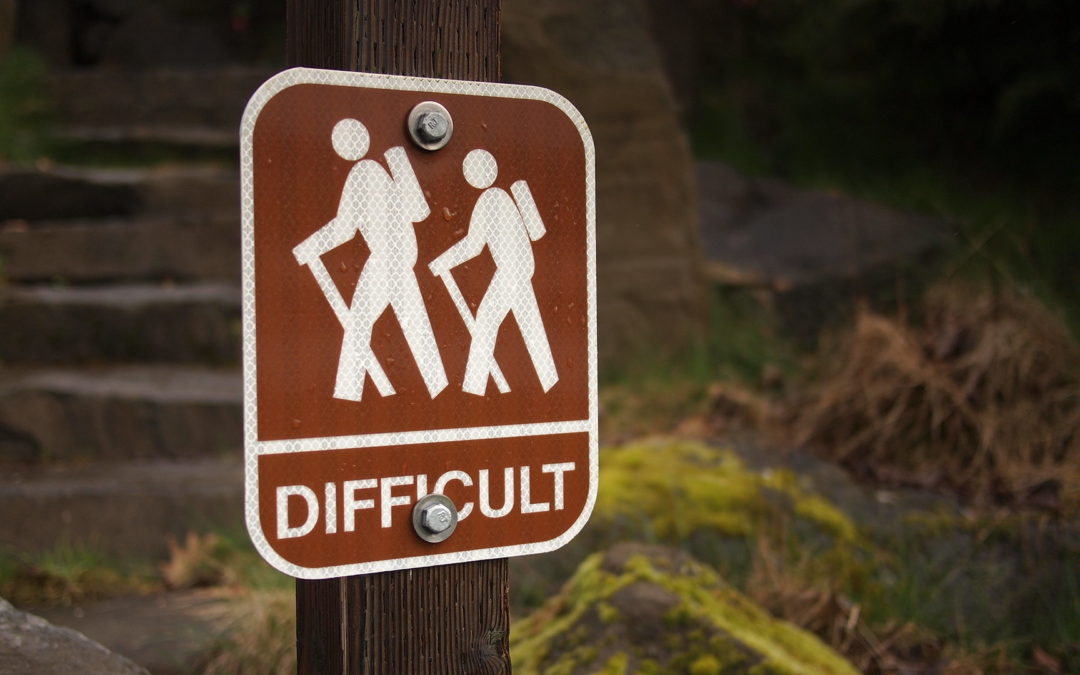Leaders in every industry need to be communicators. In the engineering world, it’s especially important since failures to communicate can derail expensive projects and potentially even cause physical harm to people. Learning to speak up will make you a better leader for your team as you will build stronger relationships and trust.
This is part 3 of a 3-part series on things that engineering leaders should say more often. In this article we’ll dig into four things that are often difficult for leaders to say. Not just engineering leaders. These are difficult to say for leaders in all organizations. Part 1 covers 4 things which are easy for engineering leaders to say while part 2 covers 4 things that are often challenging for engineering leaders to say.
The four things below might need some forethought and planning before they come out of your mouth. The rewards, though, will be worth the effort.
I see your point, but I disagree and here’s why …
Have you ever had a boss tell you, “You just don’t understand, Tracy.” Or, worse, simply say, “Wrong.”
Hopefully they didn’t call you Tracy, that would be weird. Put your name in place of mine and you get the picture. I’ve been on the receiving end of both of those statements. And, to be fair, there were times when I was wrong or simply didn’t understand. But neither statement made me feel good about myself or my engineering skills.
And, to be fair again, there were a few times when I was both correct and fully understood the situation. But I had to argue my way out of a demoralizing pit in order to be heard.
If you disagree with one of the engineers on your team, explain your stance on the issue and make it the opening of a dialog. Perhaps the engineer doesn’t understand, but perhaps you are the one who is not understanding. Or maybe you’re both a little bit right and a little bit wrong.
Opening a dialog on the subject could be a learning experience for everyone involved. And the person you’re talking to will get to keep their dignity.
I was wrong
Yeah, this one sucks. No matter who you are or what the situation is. There’s almost a physical pain that comes with saying, “I was wrong.”
As engineers, we often pride ourselves on our knowledge and understanding of situations. But sometimes we’re just plain wrong. Admitting that, though, is difficult.
Of course, those feelings of power are short-sighted. Failure to accept and admit your error can erode trust and damage the relationship. And, in an engineering project, failure to admit and correct errors can be financially costly to everyone involved.
Whether the apology is owed to your spouse, your kids, or your co-workers, you need to pull yourself together and fight past your ego to admit that you’re wrong.
I don’t know

Engineers are paid to know things. Engineering leaders get promoted because of their performance which is often involves their ability to know things. This is, again, an ego-oriented issue.
I remember the old GI Joe cartoons where they would say that knowing is half the battle. Not knowing, though, can be a great thing. Especially as a leader. Give your engineers the chance to show what they know. Or, at least, to go figure it out.
As a leader of engineers, I hope you don’t know a lot of things. I hope you’re hiring people who are smarter than you. One of the times I felt the very best as a leader was when I felt like I might be the dumbest person in the room. My team knew so much more than me, collectively and even individually, that I had the pleasure of simply facilitating discussions that got them all on the same page.
As famed physicist Richard Feynman said, “I think it’s much more interesting to live not knowing than to have answers which might be wrong.”
He was right. It was interesting. And I learned something from my team every day.
I need help
There are many reasons why we don’t want to ask for help.
- We don’t want to burden someone else.
- We don’t want to “owe” someone else.
- We don’t want to look foolish or as though we have short-comings.
- We don’t want to hear someone say no.
I could elaborate on each of these at length. Suffice it to say, if you open up and ask for help, other engineers who also feel like you – that is, they don’t want to ask for help – will see you as an example. They’ll see that it’s okay for you, a leader, to ask for help. Therefore it’s okay for them to ask for help, too.
Get the help you need and show others that it’s okay to ask for help. Be a trend setter.
The Final Takeaway
There is a single sentry standing guard over our hearts and minds. A single
Fighting through that block opens up a world of possibilities for us and our teams. And, hopefully, we won’t have to say “I was wrong” nearly as often if we intentionally say the other three every chance we get.
Also in this series:

Author: Tracy Thomason
Agile project manager by day, craft beer drinker by night, and avid reader anytime I can get 5 minutes alone with my Kindle.
More posts by Tracy
Featured Photo by Kirill Ignatyev

